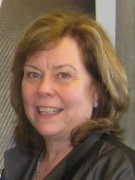
Suzanne Flynn
Department of Linguistics and Philosophy, Massachusetts Institute of Technology, USA
Keynote:"What do we mean by "Development" in multilingual language acquisition: where do we start, where do we end and how do we get there?"
In spite of the advances made in our principled understanding of adult multilingual language learning (see Bhatia and Richie 2013; Cabrelli Amaro et al. 2012; Jessner 2006), fundamental questions regarding multilingual development persist. What is the nature of the initial state (S0) in L2, L3, and multilingual acquisition? What specific properties of the first language (L1) or other known languages affect subsequent language learning? Researchers do differ greatly in their articulation of the initial state for language acquisition as well in their assumptions and hypotheses about what kind of L1 (or Ln) knowledge might affect subsequent language development (see detailed reviews on variables that affect crosslinguistic influence, e.g., Murphy 2003; Jarvis and Pavlenko 2008; Cook 2010; Rothman and Cabrelli Amaro 2010). In this paper, we will focus on developing a definition of the initial state and attempt to articulate what development consists of in progressing from the initial state to an end state in language learning. In doing so, we hope to generate several hypotheses concerning the role of other languages known in multilingual language development.
Short bio:
Professor Flynn has been a Professor of Linguistics and Language Acquisition at MIT for over 30 years. Her research focuses on the acquisition of various aspects of syntax in children and adults in the context of multi-lingual language learning. More recently, her work has focused on the neural representation of the multilingual brain and issues related to language impairment and autism. She has published extensively in journals and has authored and co-edited several books. Dr. Flynn is the co-founding editor of Syntax: A Journal of Theoretical, Experimental and Interdisciplinary Research.
Statement on Multilingualism
To begin, human language is a unique and special human capacity.
We all share this capacity as part of the human experience. No other system of communication in any other species is like human language. And, I, along with many other researchers, hypothesize that there is underlyingly only one human language. By this I mean that there is only one innate “scheme” that allows for language development. If we think of the human brain as a type of computer, with nested computers inside of it, the mini-computer within our brain that allows for and guides the development of language has to be the same for everyone. If we each had a different computer determining our development of language, each of us would develop in such a unique way that we would never be able to learn any human language. In this way, we can argue that there is really only one human language. All human languages have to be identical at their core. This does not mean that there is no variation among languages; however, these differences are very small. All languages must all share the same fundamental properties at their very center. There are certain aspects about all languages that you never have to learn; they just follow from the very special human endowment for language.
Most importantly, I hypothesize that in this context, “Multilingualism is the natural state of the human mind.” One reason for this belief is the fact that in some estimates over half of the world’s speakers are at least bi-/multi-lingual. Other estimates report that up to two-thirds of the world’s population are at least bilingual. However, absolute numbers are not the only way that we show that multilingualism is the natural state. As Chomsky argues, your ability to speak another dialect version of your first language is a form of multilingualism. If we assume that there is essentially only one human language—the innate plan-- my knowing another dialect is like knowing another language; it is simply that the degree of difference is smaller than the degree between for example, English and Japanese. In addition, as is now becoming even more well documented, the more languages one knows the easier it gets.
In my research I seek to develop principled explanations for multilingual development especially in areas of syntax and to attempt to integrate data from across a wide spectrum of research studies and frameworks. Our understanding of language learning and use is entirely inferential. We need to continuously seek convergence of evidence across distinct experimental designs and methodologies. The brain’s capacity for language is like a crystal prism that we seek to understand by investigating facet by facet.
Sponsored by





